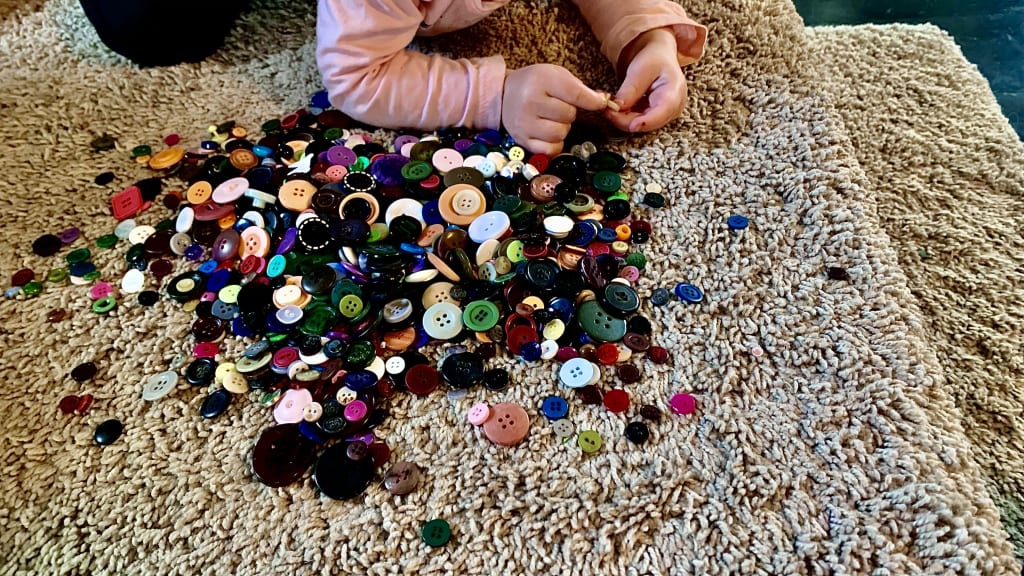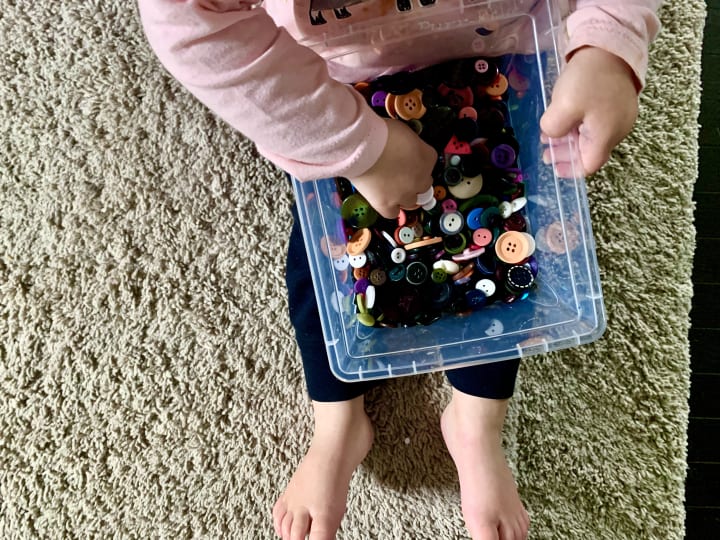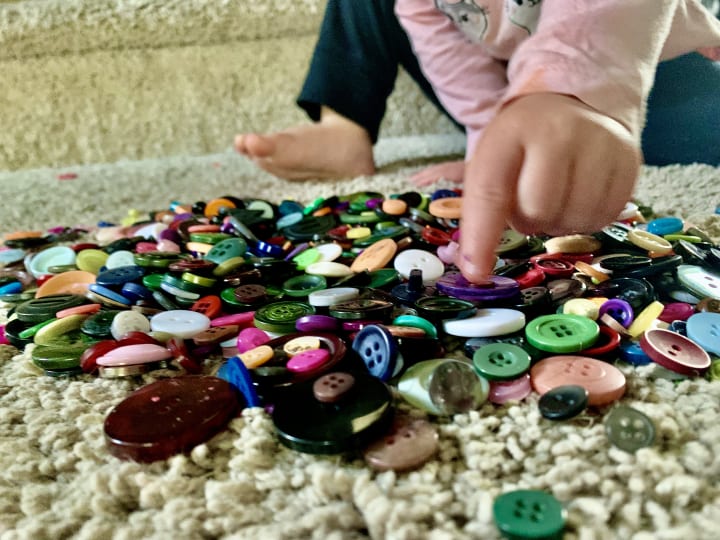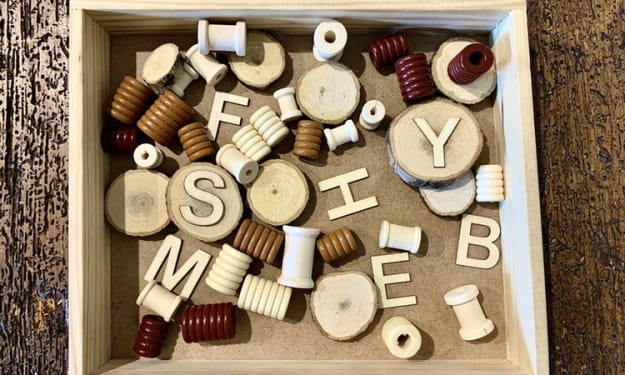Let Them Be Messy
Why Mess-Making Matters

Hundreds of colourful buttons cascade from the button box in my toddler's hands onto the carpet floor. Every inch of my entire body is silently cringing while I force a smile and cherrily say, "Wow! Look at all those buttons on the floor!" My little one delights in her precious pile of poured buttons and begins her curious exploration and observation after noting my supportive reaction. Beside her, I clasp my hands together fighting back the urge to quickly begin picking them all up off the floor. I remind myself that the mess matters to her and dive into her eager exploration.

Wait? Why Does Mess Matter?
If you are like me and find yourself shuddering at the sight of mess in your house, here are a few reasons why the mess matters and why we have to do our best to let our littles be mess makers!
1. We know children learn through their senses and making a mess awakens those sensory-receptors in the brain. Just think about the buttons spilling onto the floor from the box. The sounds the buttons made clicking off one another as they fell together onto the carpet provided auditory input to the brain. The visual input the brain received in watching gravity do its job pulling the buttons down and witnessing the way they collected in a pile on the floor is quite powerful. The tactile input her hands received as the box was once heavy with buttons and is now almost weightless with their absence is an invaluable first science lesson. Then there comes all the input again as she manipulates and experiments with them on the floor. The lessons in cause and effect alone are worthy of this mess with answers to questions like "What happens when I tilt the box?" and "Where do the buttons go?". Questioning is an important way that we build knowledge and understanding. Simple prompts like "How will the buttons fall?" or "Will it be loud?" help little ones learn about their environment, their world and the things in it.
2. We know children crave control over their environment. Making a mess allows little ones to be in control and it feels good. Mess making fosters autonomy, independence and confidence through allowing children to be in the driver's seat. They get to make decisions and that is beneficial for their development.
3. Mess making can desentitive the tactile nervous system. Children who are often mess-makers or allowed to get messy are less likely to react adversly to messes when they are older. Things like finger painting or slurping back sloppy spaghetti can cause quite an uncomfortable sensation for children who are not used to mess-making or who are shamed for making messes. These naturally messy scenarios produce a sense of anxiety for children who don't normally get messy. Children who mess-make often can often find joy in finger painting, playing in the mud, they don't mind being rained on, or getting dirty when playing outside.
4. Mess making promotes imagination and creativity. Messes are abstract and unconstrained things! They are unpredictable and really require some outside of the box thinking. This is the best space for children to experiment with their problem-solving, imagination and creativty. There is no 'right' way to play with a mess or make a mess, it's entirely open-ended.
5. Mess making provides an opportunity to model cleaning up/caring for materials. We all know some version of the 'clean-up' song and we all know that sometimes kids just DON'T want to clean up. It can be a battle we fight arduously, daily. Sometimes, as parents we end up in the clean up battle because we are asking our kids to clean up things they really wanted to play with and it's usually the mess they've made. If I had immediately asked my little girl to clean up her poured out buttons, she would have protested vehemently against it. Letting her play around for a while, satisfied her curiosity and when I told her it was time to clean up, she obliged because she had accomplished what she had set out to do - play with the buttons. Helping her with the clean up, I was able to say things like, "Putting our buttons away properly means we can play with them again later." and "It's important to put our toys and things away when we are done playing." If clean-up had been a battle, it would have been more about getting it cleaned up rather than discussing the 'why' and for our little ones, they want to know the 'why'.

So even though beads are strewn across our hardwood floor and buttons are sporadically spread across the carpet, I am getting better at letting my little one delight in this kind of play. Don't get me wrong, I still wince when I hear tiny pieces being poured out for playtime but knowing there is purposeful meaning in all of the mess definitely helps!
About the Creator
Ashley Hansen
Just a Jesus-loving former teacher turned homeschool mama of 2 precious girls who writes stuff sometimes.
My near-death experience story (A Moment with God) is pinned below.
My educational content and other stories follow thereafter.






Comments
There are no comments for this story
Be the first to respond and start the conversation.